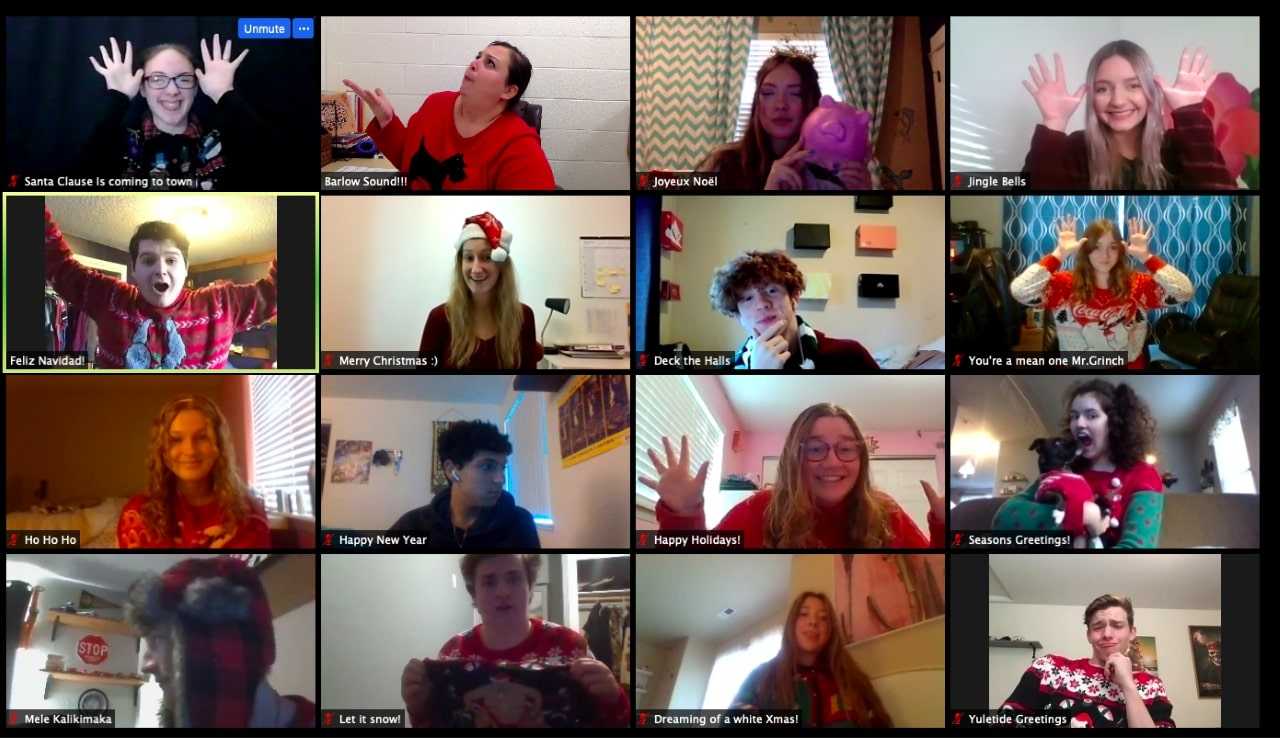
The start of the holiday season is usually when Barlow's choir is tuning up for a series of concerts in the community.
This year, though, with the COVID-19 crisis wiping out their tour, director Amber Schroeder and her students have taken the opportunity to learn a much different type of performance.
The choir has begun using Soundtrap, an online cross-platform digital audio workstation, to record songs. Students sing their parts at home individually and upload their recordings to the app, which mixes them together.
“It's studio musicianship,” Schroeder said. “The main idea is they're still singing. We're bridging the gap to create experiences. It's not what it was, but it's not nothing. I sure do appreciate starting to do something with the kids.”
The 16 advanced students in the choir, who meet four times a week online, are working on a catalog of songs to release to various venues during the holidays.
“We can actually reach more people this way than driving in a bus from place to place,” Schroeder said. “I'm calling it a digital greeting card.
“My mom lives in a retirement place, and I was hearing how they were really sad because they couldn't have those kind of performances. We can still bring them those performances, it's just going to look a little different. The kids really seem to be excited about it.”
Among the choir members that see the benefits of the format are Schroeder's son, Andrew, a junior.
“The challenges of singing in this kind of format are you're not getting any help, or the piano, that you would get in person,” he said. “But it really challenges you to do a lot of independent work, which will really improve things like sight-reading, or just getting better musically in general.
“Obviously, there are losses, but we're gaining a lot out of doing this kind of learning this year. It opens up a whole new different thing we can work on.”
The choir started recording last week. It is working on renditions of some of the more popular carols – I Wish You A Merry Christmas, Joy To The World and Hark The Herald Angels Sing – as they get accustomed to the program. Amber Schroeder said she has plans for longer versions of Rudolph The Red-Nosed Reindeer and Silent Night.
“They're both on the jazzy side,” she said.
For each song, Amber Schroeder sends students a backing track to ensure they are all on the same tempo. She gives them a due date to upload their recordings.
“Once they sync it up, I can see it from my end,” she said. “They don't have to send it to me, they literally can record directly into it. It's a pretty nice, slick program.”
Andrew Schroeder said the finished product “sounds a lot better than I expected. It kind of makes me excited or hopeful of some of the things we're working on this year.”
The choir recorded virtual pieces in the spring, but the previous program required extra steps. Schroeder said the new program not only eliminates those steps, but it is of higher sound quality.
With Soundtrap, students have the ability to add their own features, such as fading and reverb, and adjust volume. Amber Schroeder listens to each recording and has the ability to edit.
“I can check each track, like, 'Did this kid add echo and this one didn't? Was there a computer click at the end that's really abrasive and I need to cut that part out?'” she said.
Amber Schroeder, Barlow's choir director since 2010 and a board member for the Oregon Music Educators Association, is encouraged by the interactivity of the format.
“The kind of independent learning that's going on now, I've never been able to accomplish in all my years,” she said. “I'm not getting every kid yet, but the numbers who submit something for me online have gone up.”
After students return to in-person learning, Amber Schroeder said, online submissions will become part of her regular curriculum.
“I told the kids, 'Don't think all of this is going to go away. You'll still be submitting weekly vocal tests to me,” she said. “I'm looking forward to the future.”










